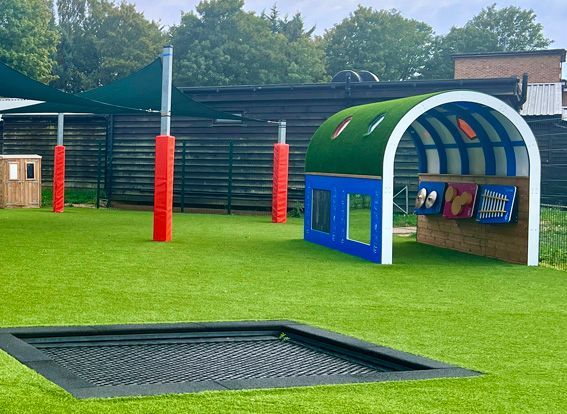Early Years
Students:
Have severe learning difficulties with some having profound and complex needs
Have communication and interaction needs
Have difficulties with sensory processing and perceived sensory patterns
Have difficulties with memory, generalising and problem solving
Have difficulties with concentration and attention
Have a need for structure and routine
Need support to interact with others
May have a range of needs including physical and medical, communication, social, emotional, mental health and or specific learning difficulties
Need support with all aspects of self-care (including feeding, dressing and intimate care)
Provision:
Students access provision that is play based, multi-sensory and exploratory. A focus throughout EYFS is the development of early interaction and communication skills. Identifying a preferred communication method. Students are encouraged to develop and generalise skills within indoor and outdoor learning environments. Student needs are quickly identified and additional provision/equipment is sourced to support their development and access to the curriculum. The main focus for students new to the school is developing their readiness to learn.
Students in the Early Years Class will have access to:
Self-contained learning environment to teach self-help skills in an area designed for maximise independence and ensures safety of students is paramount
Access to indoor and outdoor learning spaces as highlighted within the EYFS framework
High staff ratio to support access to curriculum and needs of students
Objects of reference
Photo/Symbol
Sign supported English
Augmentative and alternative communication (AAC)
Intensive interaction
Attention Autism
Sensory diets and sensory integration programs
Sensory stories and multi-sensory approaches
Social Stories
Visual supports (timetables, key rings)
Inclusive technology (switches, eye gaze)
Adaptive physical aids e.g. chairs/tables
Learning intentions for students within this Early Years class are taken from:
EHCP outcomes (Long term and annual)
Learning Pathway (small steps to the EYFS framework)
School Communication Interventions
Speech and Language Therapy (SALT) Programmes
Sensory programmes
Physio/OT programmes
Student progress is assessed by:
Learning intentions taken from suggested frameworks above
Evidence for Learning (Assessment Periods)
Reception Baseline (Statutory assessment completed and reported)
Essential 8 (Essentials for Living)
Communication data
Functional skills data
ABC data (where appropriate)
Phonics screening if applicable (Year 2 Statutory assessment)
Characteristics of Effective Learning (Reception learners)
Engagement Model (Year 1 and above learners)




